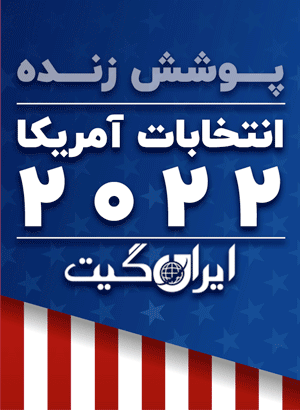Political advocacy on controversial activism
According to Iran Gate, the recent statements of Prince Reza Pahlavi regarding the need for internal forces to support his potential international negotiations on Iran have sparked controversy and turned into viral topics on Persian-speaking social media platforms.
Simultaneously, the hashtags #IamAnAdvocate and #RezaPahlavi have become hot topics on Twitter, with both opponents and supporters expressing their positions in Persian or English.
The slogan of ‘I am a homeland advocate’ has been repeated by a number of supporters who grant their advocacy to Mr. Pahlavi on social networks.
In an interview aired on Manoto TV on January 16th, Reza Pahlavi mentioned the possibility of meeting and negotiating with political figures to present a program or project on Iran. He stated that any action we take tomorrow must have an acceptable basis of legitimacy from within.
He added that if we are to engage in necessary negotiations on the international stage tomorrow, we must demonstrate that this is in support and representation of political prisoners, civil activists, and intellectual and political movements within the country.
In response to the question of whether it is time for him to take on a more prominent role as a coordinator of anti-government movements, he said, to put it simply, let’s say tomorrow I am able to meet with other individuals who are aligned with me on this path. The first question they will ask is why are you here representing what?
Supporters and the hashtag #IAdvocateFor
After these remarks, Saeed Hafezi, a journalist residing in Germany, launched the campaign #IAdvocateFor, and several personalities from various fields, including Dariush Eghbali, a singer, Hassan Shamaizadeh, a composer, Ali Karimi and Soosha Makani, Iranian football stars, Hamid Farrokhnejad, Parastou Salehi, and Ronak Younesi, actors, as well as Mehrdad Zarei, from the families of the victims of the downing of the Ukrainian plane, joined the campaign.
Manouchehr Bakhtiari, the father of Pouya Bakhtiari, who was killed in November 2019, also expressed solidarity with this campaign in a voice message from Evin Prison, stating that he advocates and represents Reza Pahlavi for changing the Islamic Republic.
Mehdi Maskinnavaz, Abdolrasavi Mortezaei, and Ali Musinjadeh Farkoush, political prisoners from Rajai Shahr prison, also expressed solidarity with this campaign. Some supporters of my campaign, including Dariush Eqbali and Ali Karimi, have emphasized in their statements that they only provide legal representation to Prince Reza Pahlavi during the transition and change of the Islamic Republic, and after that, the fate of the government will be determined by free elections.
Actor Ehsan Karami also created an online petition on January 17th titled ‘Granting Legal Representation to Mr. Pahlavi’, which, until the time of this news being prepared, has successfully gathered over 220,000 signatures in support of symbolically granting representation to Reza Pahlavi.
Strong Opponents
However, this campaign has also faced opposition, and some activists and online influencers have criticized the concept of legal representation, viewing it as contradictory to solidarity and coalition. They see it as closer to monarchy and succession. For example, political activist Ali Afshari wrote in a tweet, ‘Although religious despotism is the main problem, what is more important than getting rid of the dictator is self-determination and resistance against all forms of despotism.’
He indirectly refers to the issue of granting power of attorney to Mr. Pahlavi as a political absurdity, and adds that there are informed circles inside and outside Iran who are deliberately discrediting organizations and political parties in order to maintain political hegemony.
Some opponents also prefer that the power of attorney be given to someone from within Iran, especially someone from political prisoners, including women prisoners who led protests and represented the protesters. Opponents of this plan believe that due to the internet situation in Iran, not everyone is able to participate in the vote to grant or not grant power of attorney to Reza Pahlavi, and for this reason, this method is undemocratic.
A heated debate between supporters and opponents
While opponents emphasize the lack of clarity about Prince Reza Pahlavi’s plan, supporters say that he is actually asking permission from the Iranian people to be able to meet with international political leaders. In his statements, he has repeatedly emphasized the preservation of Iran’s territorial integrity, respect for the rights of all Iranians and human rights, secularism, and democracy, and for this reason, he has a specific plan.
Supporters believe that nationalism, secularism, and human rights are three areas of agreement among opponents, which Reza Pahlavi has also emphasized. Three years ago, Reza Pahlavi officially stated in a television interview that he wants to advocate for the people of Iran against the Islamic Republic.
In recent years, after the promotion of slogans in favor of the Pahlavi family and the expression of regret by some protesters about the 1979 revolution, the Pahlavi family’s activities have increased both in the virtual and real world.
Prince Reza Pahlavi and Empress Farah Pahlavi have repeatedly supported the protesters during the women’s rights protests and have called for the solidarity of all Iranians in confronting the Islamic Republic.


